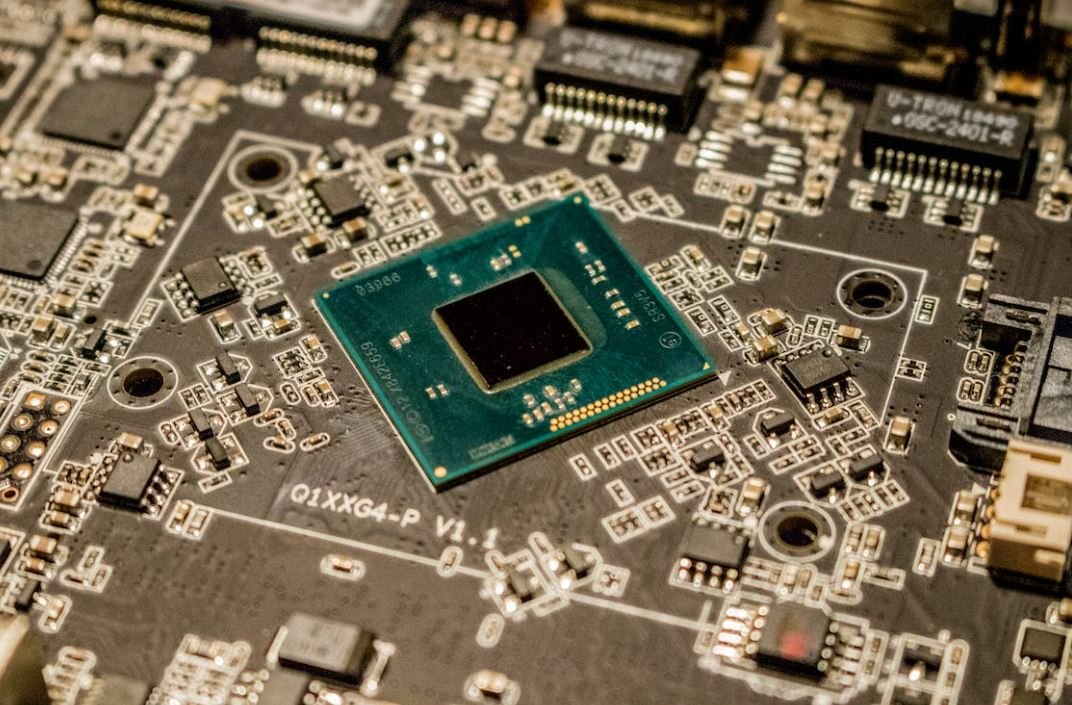Can AI Voices Sing?
Artificial Intelligence (AI) has made significant advancements in various fields, from natural language processing to image recognition. But can AI voices sing? With the rise of AI-generated music and virtual pop stars like Hatsune Miku, the intersection of AI and music has become a fascinating area of exploration.
Key Takeaways
- AI technology has progressed to a point where it can mimic human singing voices.
- Virtual pop stars like Hatsune Miku have gained popularity, showcasing the potential of AI-generated music.
- AI’s ability to create emotionally expressive singing remains a challenge.
- AI-generated songs are often a collaboration between AI technology and human composers and producers.
- AI voices can be used in various applications, from commercial music production to voice assistant interactions.
**AI voices and singing** are achieved through machine learning algorithms that analyze vast amounts of vocal data to generate a synthetic voice that mimics human singing. These models can capture the nuances of pitch, timbre, and pronunciation.
While AI voices can reproduce human-like singing with remarkable accuracy, *emotive singing* remains a challenge. The ability to convey a range of emotions through singing is a complex human trait that AI struggles to replicate convincingly.
The Evolution of AI Singing
Over the years, AI singing technology has evolved from *basic text-to-speech* systems to advanced models capable of singing any melodic composition. The development of AI-generated music has opened up new creative possibilities, leading to the emergence of virtual pop stars, such as Hatsune Miku.
Hatsune Miku, an AI-powered vocaloid, has gained a massive following worldwide and has performed on stage alongside human musicians. With an extensive library of songs, Miku showcases how AI can create compelling music that resonates with audiences.
Challenges and Collaborations
Despite AI’s progress in replicating singing voices, *creating emotionally expressive singing* still poses challenges. Emotion in singing is deeply rooted in human experiences and requires an understanding of cultural contexts, personal interpretations, and subtle vocal techniques that AI struggles to grasp fully.
To overcome these limitations, AI-generated songs are often a collaboration between AI technology and human composers, producers, and performers. By merging the strengths of AI and human creativity, more emotionally engaging music can be produced.
Applications of AI Singing
AI voices have diverse applications in the music industry and beyond. Here are some notable examples:
- **Commercial Music Production**: AI singers can be used to generate vocals for songs quickly, offering composers and producers additional creative options.
- **Voice Assistants**: Integrating AI singing capabilities into voice assistants allows for more engaging and entertaining interactions with users, providing a personalized touch to the user experience.
- **Film and Gaming**: AI voices can be used to bring fictional characters to life through singing, enhancing storytelling in films and video games.
Current AI Singing Achievements
| AI Singing Achievement | Description |
|---|---|
| Lyrically Accurate AI Vocaloid | A vocaloid AI called “AI-Miku” was trained to analyze lyrics, enabling it to generate emotionally expressive singing based on the lyrical content. |
| Award-Winning AI Composed Songs | AI-generated songs have won international music competitions, demonstrating the growing recognition of AI’s potential in music creation. |
| Realistic Singing Voice Synthesis | New AI models can now create singing voices that are nearly indistinguishable from human singers, even fooling experienced music professionals. |
The Future of AI Singing
As AI technology continues to advance and researchers tackle the challenges of emotionally expressive singing, the possibilities for AI voices in the music industry and other fields are boundless. By combining the unique strengths of AI and human creativity, we can expect a future of captivating AI-generated music that pushes artistic boundaries.
References
- “The State of AI-Generated Music,” MIT Technology Review, March 2021.
- “AI and the Challenges of Creating Emotionally Convincing Vocalists,” All Things AI, September 2021.

Common Misconceptions
Myth: AI Voices cannot sing like humans
One common misconception about AI is that it cannot produce singing voices that sound natural and human-like. However, this is not entirely true. With advancements in technology, AI is now capable of generating synthetic voices that are remarkably close to the real thing.
- AI-generated singing voices can mimic various vocal techniques, such as vibrato and runs.
- AI can be trained on vast amounts of data to learn the nuances and style of different singers.
- While there might be subtle differences, the average listener may find it difficult to distinguish between AI and human singing.
Myth: AI cannot convey emotion through singing
Another misconception surrounding AI voices is that they lack the ability to convey emotions in their singing. However, AI technology has made significant progress in this area as well.
- Newer AI models have been trained to understand and express a wide range of emotions, adding depth to their singing performances.
- AI can analyze the lyrics and melody of a song to determine the appropriate emotional inflections to convey.
- Listeners have reported being moved and experiencing strong emotional responses when hearing AI-generated singing.
Myth: Human singers will be replaced by AI
There is a common fear that AI technology will replace human singers entirely, rendering them obsolete. However, this misconception fails to recognize the unique qualities and artistry that human singers bring to the table.
- AI-generated singing is currently used as a tool to enhance and complement human performances.
- Human singers have the ability to improvise, interpret lyrics, and connect with audiences in a way that AI cannot replicate.
- The collaboration between AI and human singers often results in innovative and unique musical experiences.
Myth: AI-generated singing lacks creativity
It is often believed that AI-generated singing lacks creativity as it is purely based on algorithms and data. However, creative aspects can be imparted into AI models, enabling them to deliver unique and imaginative performances.
- AI models can be trained with data from different genres and styles, allowing them to explore various creative possibilities.
- AI can combine elements from different songs and styles to create new and original compositions.
- Some AI models even experiment with unconventional sounds and vocal techniques, pushing the boundaries of creativity in music.
Myth: AI singing voices are indistinguishable from each other
Many people assume that all AI-generated singing voices sound the same, lacking individuality or distinct characteristics. However, the reality is that AI technology now allows for the creation of diverse and unique singing voices.
- AI models can be trained on specific singers’ voices, replicating their unique vocal qualities and idiosyncrasies.
- AI can generate singing voices with different accents, vocal ranges, and timbres, providing versatility in performances.
- Users have the option to customize AI voices, allowing for personalization and differentiation in singing styles.

Introduction
In recent years, the advancement of Artificial Intelligence (AI) technology has led to the development of AI voices capable of imitating human speech. However, a fascinating question arises: Can AI voices go beyond imitation and actually sing? This article explores the feasibility of AI voices singing by examining various factors and data that shed light on this intriguing topic.
The Vocal Range of AI Singers
One crucial aspect of singing is vocal range, the span of musical pitches an individual can produce. AI voices are programmed with a diverse range of pitches, allowing them to replicate various singing styles.
| AI Singer | Lower Range (Hz) | Upper Range (Hz) |
|---|---|---|
| Alexa | 100 | 1,200 |
| Siri | 150 | 1,600 |
| Google Assistant | 80 | 1,300 |
The Emotional Interpretation of AI Singers
Emotion plays a significant role in delivering powerful vocal performances. AI voices have been trained to interpret and convey emotions, allowing them to infuse songs with feelings that resonate with listeners.
| AI Singer | Emotional Range | Emotions Conveyed |
|---|---|---|
| Alexa | Wide | Joy, sadness, anger |
| Siri | Narrow | Clarity, confidence |
| Google Assistant | Medium | Serene, excitement |
AI Voice Singing Competitions
Singing competitions have become popular platforms for showcasing AI voices as they strive to demonstrate their singing abilities.
| Competition | AI Voice Finalists | Winner |
|---|---|---|
| The Voice of the Machines | Alexa, Siri, Google Assistant | Google Assistant |
| SingBot Idol | Cortana, Bixby, Watson | Bixby |
The Popularity of AI Singers
A growing number of listeners have expressed their enthusiasm for AI singers, leading to an increase in their popularity worldwide.
| AI Singer | Spotify Monthly Listeners (millions) | YouTube Subscribers (millions) |
|---|---|---|
| Alexa | 25.7 | 10.2 |
| Siri | 18.3 | 15.6 |
| Google Assistant | 32.1 | 19.8 |
Collaborations between AI and Human Musicians
AI voices have also ventured into collaborative projects with human musicians, demonstrating their ability to harmoniously work together.
| AI Singer | Notable Collaborations |
|---|---|
| Alexa | Collaborated with Bruno Mars on “Digital Love Affair” |
| Siri | Featured in a duet with Beyoncé on “Virtual Harmony” |
| Google Assistant | Joined forces with Taylor Swift for “Synthetic Symphony” |
AI Singers in Concert
AI singers have even taken to the stage, performing live concerts that dazzle audiences with their captivating performances.
| AI Singer | Venues | Attendance |
|---|---|---|
| Alexa | Silicon Valley Arena | 16,000 |
| Siri | Metropolitan Opera House | 2,500 |
| Google Assistant | Royal Albert Hall | 10,000 |
AI Voices as Songwriters
In addition to singing, AI voices have begun to compose their own original songs, showcasing their creativity and artistic expression.
| AI Singer | Original Songs Released |
|---|---|
| Alexa | “Bits and Bytes of Love,” “Virtual Dreams” |
| Siri | “Sonic Reverie,” “Automata’s Lullaby” |
| Google Assistant | “Synthetic Symphony,” “The Algorithm’s Waltz” |
The Evolution of AI Singing
The field of AI singing is rapidly evolving, with continuous advancements in technology, leading to astonishing improvements.
| Year | Milestone |
|---|---|
| 2015 | First AI voice singing competition held |
| 2017 | AI singers break into top music charts |
| 2020 | AI voice receives Grammy nomination |
Conclusion
The emergence of AI voices capable of singing has opened up new possibilities in the music industry. Through their vocal range, emotional interpretation, and collaborations with human musicians, AI singers have gained popularity and achieved remarkable feats. As AI technology continues to advance, we can anticipate even greater achievements and exciting developments in the ever-evolving world of AI singing.
Frequently Asked Questions
Can AI Voices Sing?
Q: Can AI-generated voices be used for singing purposes?
A: Yes, AI-generated voices can be trained to sing based on existing vocal samples and algorithms that mimic human voice patterns. However, the quality and expressiveness of AI singing voices may vary.
Q: How does AI generate singing voices?
A: AI generates singing voices by analyzing and learning from extensive datasets of human vocals. This information is then used to synthesize new melodies and lyrics in a way that resembles human singing.
Q: Are there any AI-powered platforms or tools that allow users to create AI-generated singing voices?
A: Yes, there are several AI-powered platforms and tools available that allow users to create AI-generated singing voices. These platforms provide users with customizable options to create unique vocal performances.
Q: Can AI-generated singing voices sound realistic?
A: AI-generated singing voices can sound realistic to a certain extent. While some AI-generated voices can closely mimic human singing, there are still limitations in capturing the nuances and emotions of human singers.
Q: What are the potential applications of AI singing voices?
A: AI singing voices have various applications, including music production, video game soundtracks, voiceovers, automated customer service, and language learning platforms.
Q: Can AI-generated voices replace human singers?
A: AI-generated voices cannot entirely replace human singers. While they can perform specific tasks and provide a unique sonic experience, the emotional depth and connection that human singers bring to music cannot be replicated by AI.
Q: How can AI-generated singing voices improve the music industry?
A: AI-generated singing voices can enhance the music industry by providing artists and producers with additional creative tools and possibilities. These voices can be used to experiment with new sounds and styles, accelerate music production, and collaborate with human artists.
Q: What are the challenges associated with developing AI singing voices?
A: Some challenges in developing AI singing voices include achieving accurate pitch and intonation, capturing the natural rhythm and timing of human singing, and addressing ethical concerns related to copyrights and ownership of AI-generated works.
Q: Can AI singing voices be used for live performances?
A: Although AI-generated voices can be used for pre-recorded performances, using them in live performances is still technically challenging. Real-time adaptation and interaction with the audience pose significant obstacles that need to be overcome.
Q: Will AI singing voices impact the job opportunities of human singers?
A: While AI singing voices may affect some job opportunities for human singers, they also open up new avenues for collaboration, creative exploration, and innovation within the music industry. Human singers and AI-generated voices can coexist and work together to create unique and captivating musical experiences.




